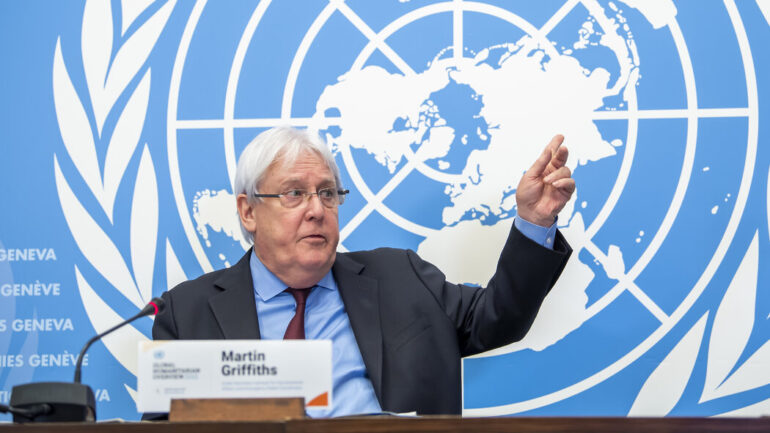Speaking to BBC Radio 4’s Today Programme on Friday, Martin Griffiths, the UN’s Under Secretary General for Humanitarian Affairs and Emergency Relief, said that the Taliban’s ban on women working for NGO’s was “a body blow against our capacity to deliver” aid to 28 million people. Afghanistan, he said, was the largest humanitarian aid programme in the world, which couldn’t be delivered without women working.
Martin Griffiths said that he was planning to visit Afghanistan in the coming weeks “to meet as many and as senior and as powerful and decisive members of the Taliban as possible.” The UN and the international community, he said, couldn’t rely on the Taliban leadership’s promises, as the group had gone back on its commitments to protect women’s rights before and soon after it return to power in Afghanistan.

The UN aid chief warned that he could not “foresee” aid agencies could continue delivering their programmes without women working. Women and girls, he said, were the “primary objects of humanitarian assistance.” The international community he added, could not trust the Taliban to reverse restrictions on women’s rights. “Trust and verify,” he added.
Asked about the Taliban’s misuse of aid and that the group’s leaders and commanders used the money sent into the country for their own ends, as recently reported by Foreign Policy magazine, Martin Griffiths rejected such possibility saying that aid agencies’ works were audited and inspected and that “we spend a huge amount of time” to ensure the Taliban didn’t benefit.
The Taliban’s ban on women working for NGOs has resulted in aid agencies, including the UN, suspending their operations in Afghanistan, deepening the country’s humanitarian crisis.




